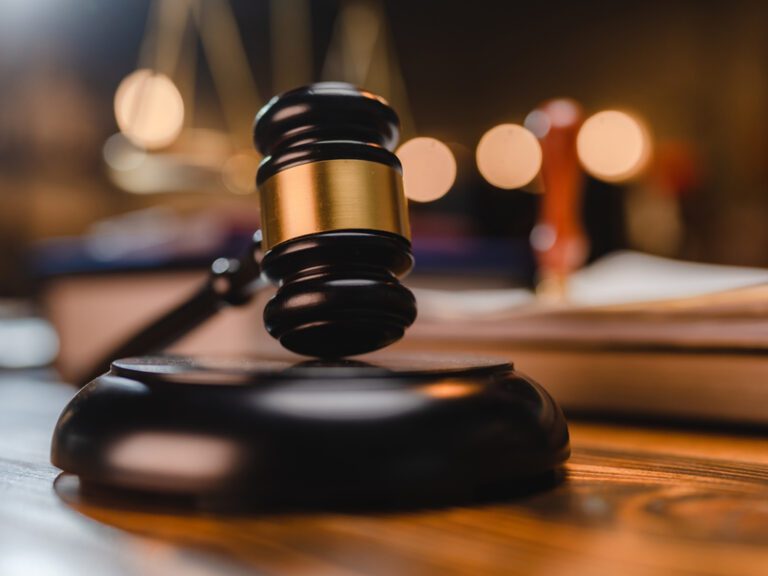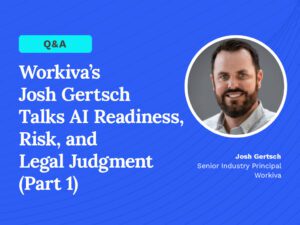A New Tool for Restoring Sound Science in the Courtroom
By Eric Lasker
January 24, 2024

Eric Lasker is a partner at Hollingsworth LLP, where he specializes in the defense of toxic tort, product liability and environmental litigation. He is the co-author of Defending Daubert: It’s Time to Amend Federal Rule of Evidence 702.
For the business community — manufacturers, innovators, and the agriculture and energy sectors — the proper application of the scientific method is essential. Businesses that proceed based on untested technologies or speculative guesswork are generally doomed to failure.
However, one U.S. business hasn’t been so bound: the private plaintiffs’ bar. For decades, plaintiff attorneys have secured enormous payouts by filing mass toxic tort, products liability and environmental lawsuits based on scientific hypotheses that cannot be validated. For example, Bayer is currently facing thousands of lawsuits and billion-dollar liabilities for cancers allegedly caused by the herbicide glyphosate which the United States Environmental Protection Agency and international regulators have studied extensively for decades and repeatedly concluded does not cause cancer.
It wasn’t always this way. Indeed, private litigation once played an important role in improving public health and the environment. Early lawsuits properly targeted products like tobacco and asbestos that had been scientifically shown to cause injury and historical waste disposal practices that had polluted our air, water and land.
However, as the financial incentives for mass litigation increased and plaintiffs’ counsel began searching for “the next asbestos,” sound science was abandoned. Plaintiffs’ attorneys targeted products like vaccines, the morning sickness drug Bendectin and breast implants, with little or no credible scientific evidence. Instead, they spun conspiracy stories, exploited anti-business bias and cultivated experts who spewed science-sounding speculation.
The United States Supreme Court sought to stem this tide in its 1993 Daubert v. Merrell Dow Pharmaceuticals Inc. decision, charging trial judges with the role of gatekeeper to protect jurors from unreliable scientific expert testimony. Two further rulings in the 1990s — General Electric Co. v. Joiner and Kumho Tire Co. v. Carmichael — completed the Daubert trilogy. In 2000, the U.S. Judicial Conference amended Federal Rule of Evidence 702 to codify a more rigorous and structured approach for determining the admissibility of expert testimony.
Plaintiffs’ attorneys chipped away at these evidentiary protections, often relying on cases that pre-dated the 2000 amendments to Rule 702 or even the Daubert opinion itself. Plaintiff-friendly courts failed to hold plaintiffs to the preponderance of the evidence standard to establish the admissibility of expert testimony, avoided the hard but necessary work of ensuring that expert testimony reflected a reliable application of the scientific method, and passed along the complicated task of sifting through powerful and misleading expert testimony to lay juries.
On December 1, 2023, an important step was taken towards restoring scientific integrity in the courtroom. After eight years of deliberation, the U.S. Judicial Conference Rules Committee amended Rule 702 once again, expressly adding the preponderance of the evidence standard into the rule and strengthening the Rule’s reliability requirements.
In explaining the amendment, the Committee admonished the many courts that had held “that the critical questions of the sufficiency of an expert’s basis, and the application of the expert’s methodology, are questions of weight and not admissibility,” explaining that “[t]hese rulings are an incorrect application of Rule 702 and 104(a).” The Committee also took aim at courts admitting expert testimony that started with reliable facts and reliable methodologies but then stretched beyond what those facts and methodologies would reasonably support.
This is often the most challenging step in a court’s gatekeeping function because it requires close scrutiny of the analyses and reasoning by which experts reach their opinions. As the Committee explained, “judicial gatekeeping is essential because just as jurors may be unable, due to a lack of specialized knowledge, to evaluate meaningfully the reliability of scientific and other methods underlying an expert’s opinion, jurors may also lack the specialized knowledge to determine whether the conclusions of an expert go beyond what the expert’s basis and methodology may reasonably support.”
In amending Rule 702, the Committee steered the courts back toward sound science. However, history tells us to expect renewed pushback from the plaintiffs’ bar and recalcitrance from courts. Businesses and advocates of sound science must remain vigilant, fully understanding and explaining the amended Rule to ensure that the plaintiffs’ bar is guided in the future by the same standard of scientific knowledge that governs and improves the rest of society.
Must read intelligence for general counsel
Subscribe to the Daily Updates newsletter to be at the forefront of best practices and the latest legal news.
Daily Updates
Sign up for our free daily newsletter for the latest news and business legal developments.




